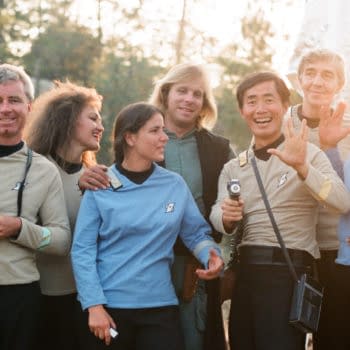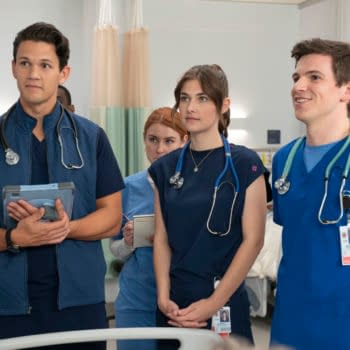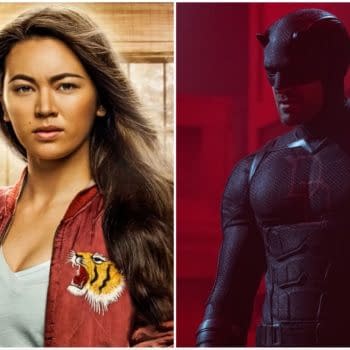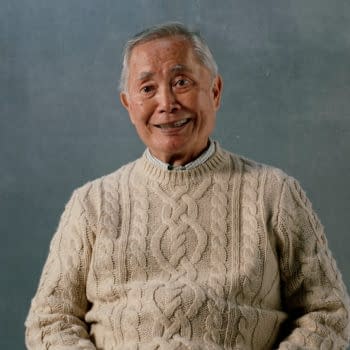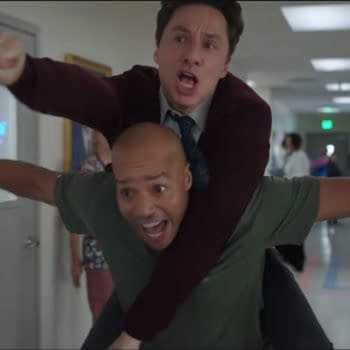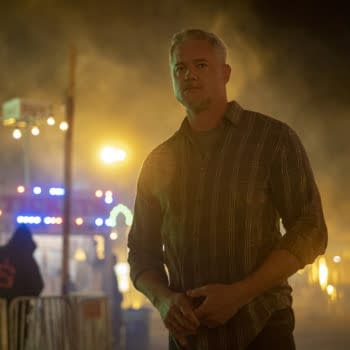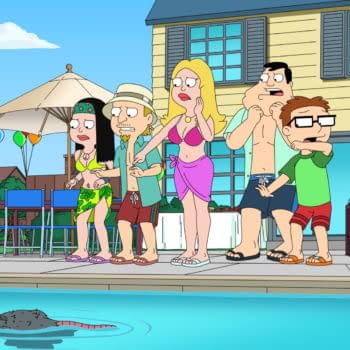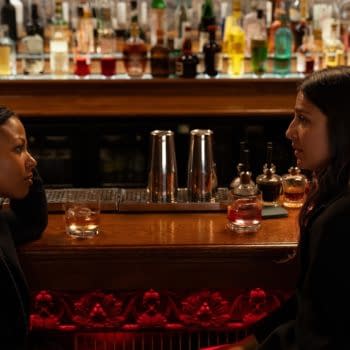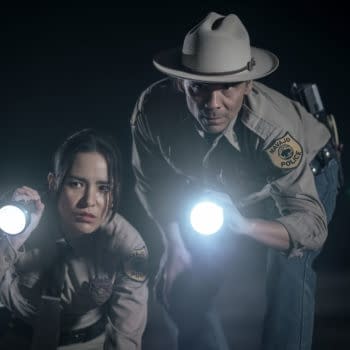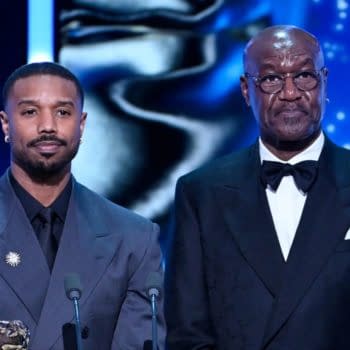Posted in: Netflix, streaming, TV | Tagged: exclusive, house of usher, interview, Jonathan Wales, Mike Flanagan, netflix, the fall of the house of usher
House of Usher Sound Editor on Evoking Poe, Working with Mike Flanagan
The Fall of the House of Usher sound editor Jonathan Wales (Midnight Mass) on evoking Edgar Allan Poe, working with Mike Flanagan & more.
It's not much of a trade secret that auteurs have their favorites that they love to work with on projects, and creator Mike Flanagan is no exception. Helping to expand his horror empire on Netflix includes Midnight Mass, Haunting of Hill House, The Haunting of Bly Manor, and The Midnight Club is supervising sound editor Jonathan Wales. Their latest project revisits the writings of Edgar Allan Poe in The Fall of the House of Usher. Based on the short story of the same name, Flanagan turned it into a miniseries while paying tribute with several references to his other works. The miniseries follows the CEO of a corrupt pharmaceutical company (Bruce Greenwood), who faces his questionable past when his children start dying in mysterious and brutal ways. Wales has ties to the original 1960 film adaptation House of Usher in director Roger Corman, who served as executive producer for Death Race III: Inferno, as the film's sound mixer. He spoke to Bleeding Cool about the rapport he's built with Flanagan over the years, their creative process, how Poe's other works expand into the Netflix series, if there are any references to the 1960 adaption, and if he approaches horror differently than his other genre work.
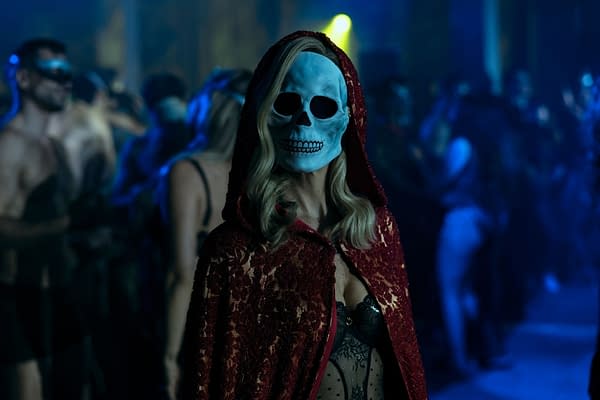
The Fall of the House of Usher: Recreating the Poe Universe in the Miniseries
Bleeding Cool: How did you get involved with 'The Fall of the House of Usher?'
Wales: I've been fortunate to have worked with [creator] Mike Flanagan on quite a few projects. The first time was 'Hush' [2016], and I've done all his projects since then. He had talked about [House of Usher] as an upcoming project and had said, "Obviously, you want to do it." I was like, "Absolutely! That sounds like a lot of fun." We started to talk about that towards the end of working on 'Midnight Mass' and 'The Midnight Club.' Since a lot of those projects were overlapping. They were filming 'Usher' while we were still finishing 'Midnight Club.' It was a similar process when I worked on 'Midnight Club' while we were finishing 'Midnight Mass.' It was an ongoing train of work during that period. It was something that we were aware of for a while, and we were excited to see what was going to happen.
What do you think building rapport with Mike has done for you over the years? Do you feel like you share a like mind at this point with minimal communication?
Working with Mike is always a lot of work that doesn't feel like work because it's an enjoyable process. Mike has been one of the smartest people, and over the years, we've managed to develop communication so that I have an idea of roughly what he's going to like. The way we tend to work has been, "I will do my version or my pass on whatever show it is, like 'House of Usher.' I'll put together a first pass to play to him, and then he's going to come back and say, "This works, and this doesn't. I like this, but not that," and we go from there. There is a lot of communication that we've managed to establish over the years, so we do understand each other's sensibilities.
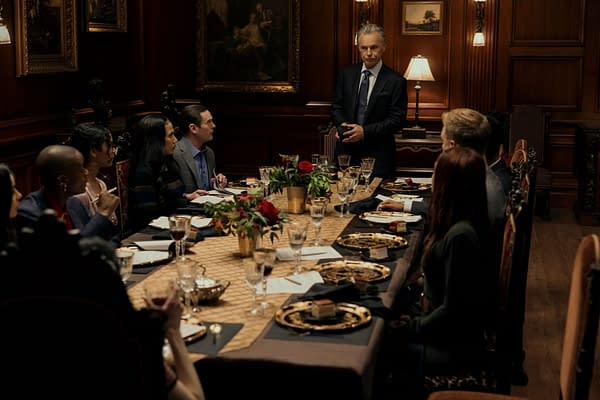
How has a project like 'House of Usher' different from some of your other work with him?
'Usher' was challenging in terms of it being a large scope. The stories themselves are big individually. There are a lot of references we're trying to pay to the original source material and to how Mike is taking the works of Poe and integrating them into the story. It's also an interesting one because of the structure of how the series is put together, and the interview between Dupin [Carl Lumbly] and [Roderick] Usher [Greenwood] is an ongoing theme in his old house all the way through. In that interview, there's this big storm building the whole time that, in the end, becomes enormous.
We're trying to intersperse that long timeline with all the individual stories as we're going through the individual episodes. We're visiting a lot of locations on a large and small scale. Craziness, like the big orgy party at the end of episode two or the death of Freddie [Henry Thomas] at the end of episode seven with the giant pit-in-the-pendulum machine that slices him in half. There's a lot of that type of thing. Piecing those things together is challenging. It feels like it has flow, but it's also intense, and you can keep track of all the different storylines. It was challenging in that respect, unlike a more linear story like 'Midnight Mass,' where you just arrive somewhere and then you're telling a story in a relatively linear fashion from that point.
Did you and Mike set out at all to evoke anything from the 1960 Roger Corman-directed and Vincent Price-starred film, or was it something you steered clear of?
"Stay away" was the correct approach there. The reference is on the source material in the words and the story itself. We wanted to do this in whatever way it was speaking to us like "This is how this should be. This is what's going to make it work." It's always difficult when you try to refer to previous material that was a completely different approach because it's focused on the singular book rather than what this is. In our case, it was also bringing in other elements of Poe's writing in his works into each of the different episodes. We were not referring to that at all in terms of a starting point. What we go for when we build a soundtrack with Mike is, "What does this story need to be cool? How are we going to make it suspenseful, scary, and emotional? How are we going to carry an audience through so that they're invested in what the characters are going through?" so we can communicate the themes and the central ideas of the entire plot.
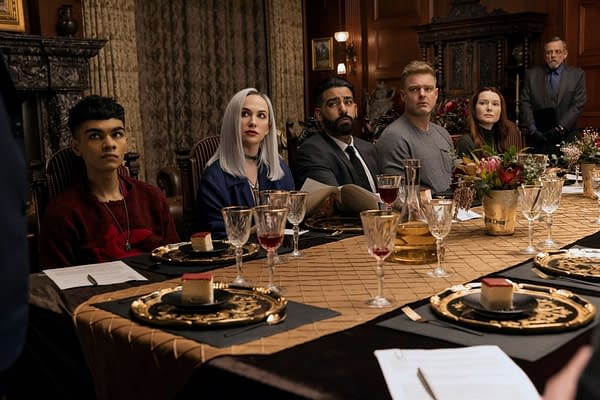
You've worked in horror for a long time. Is your approach different from your other genre work?
Yes and No. All moviemaking is first and foremost about the story. The question is, "How do you manage to tell the story in a way that the audience is invested in, that you can bring them on that ride with you?" Part of that is not going too far but also trying to figure out where we can push the boundaries, especially once you get into horror. What can we do to freak people out, or how do we tell this story that's inherently horrible but in a way that can make audiences think?
There are some gruesome things that happen in doing gruesome for itself is one thing, but the real trick is, "Can you set it up in such a way that by the time something's happening, the audience is so involved in the story and so sold on the characters that they actually are along for the ride." Everything you're doing then services that storytelling rather than being a trick. Sometimes, we don't acknowledge things like there are several times in [House of Usher] where something strange is happening and we totally ignore it and allow it to be something that the audience processes visually. Other times, something strange will happen and we make a giant deal of it. That's part of the genius of the way Mike has always told these types of stories is that there's a lot of restraint exercised in terms of when are we going to do something that's bigger, when do we not need to, and we can let it be creepy and fill it with dread.
The Fall of the House of Usher, which also stars Carlo Gugino, Mary McDonnell, Rahul Kohli, Samantha Sloyan, T'Nia Miller, Zach Gilford, Willa Fitzgerald, Michael Trucco, Katie Parker, and Mark Hamill, is streaming on Netflix.






